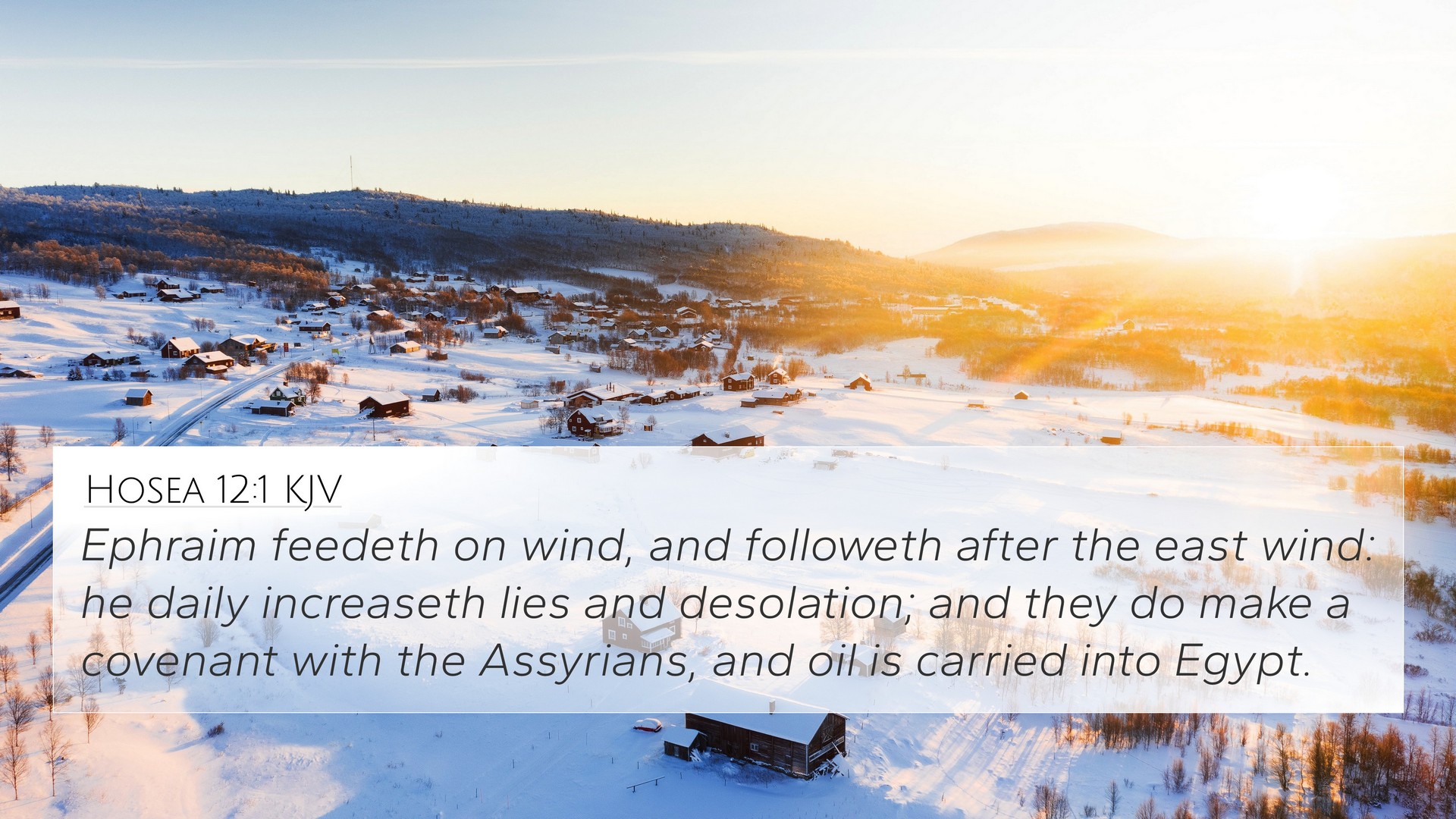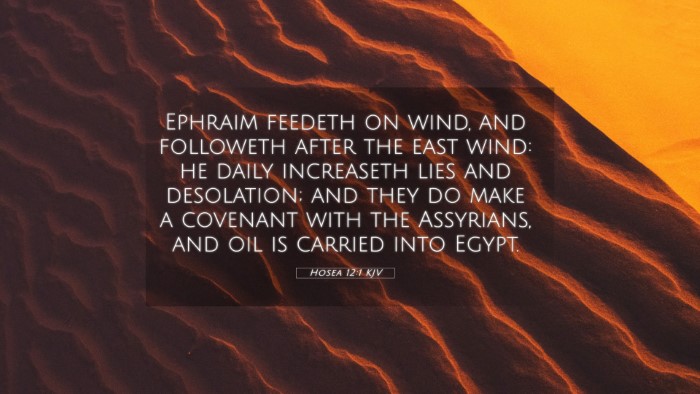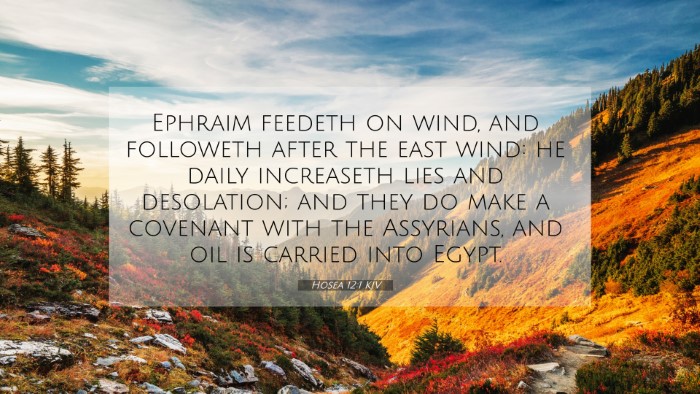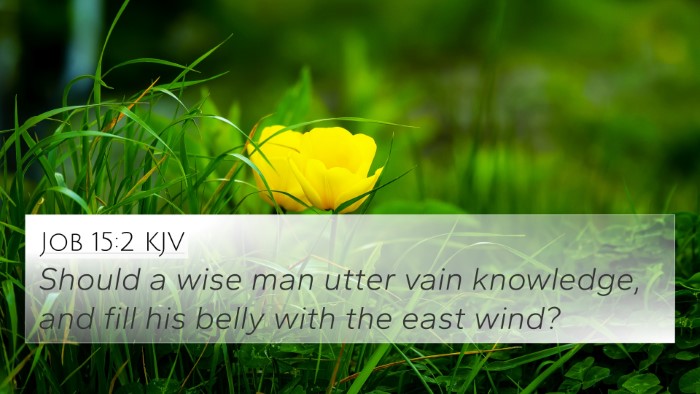Old Testament
Genesis Exodus Leviticus Numbers Deuteronomy Joshua Judges Ruth 1 Samuel 2 Samuel 1 Kings 2 Kings 1 Chronicles 2 Chronicles Ezra Nehemiah Esther Job Psalms Proverbs Ecclesiastes Song of Solomon Isaiah Jeremiah Lamentations Ezekiel Daniel Hosea Joel Amos Obadiah Jonah Micah Nahum Habakkuk Zephaniah Haggai Zechariah MalachiHosea 12:1 Similar Verses
Hosea 12:1 Cross References
Ephraim feedeth on wind, and followeth after the east wind: he daily increaseth lies and desolation; and they do make a covenant with the Assyrians, and oil is carried into Egypt.
Uncover the Rich Themes and Topics of This Bible Verse
Listed below are the Bible themes associated with Hosea 12:1. We invite you to explore each theme to gain deeper insights into the Scriptures.
Hosea 12:1 Cross Reference Verses
This section features a detailed cross-reference designed to enrich your understanding of the Scriptures. Below, you will find carefully selected verses that echo the themes and teachings related to Hosea 12:1 KJV. Click on any image to explore detailed analyses of related Bible verses and uncover deeper theological insights.
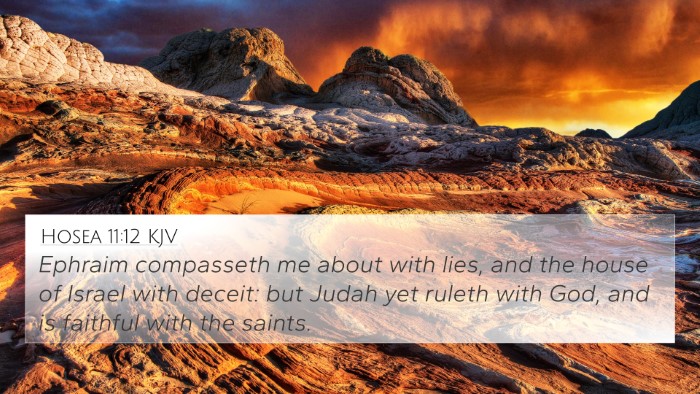
Hosea 11:12 (KJV) »
Ephraim compasseth me about with lies, and the house of Israel with deceit: but Judah yet ruleth with God, and is faithful with the saints.
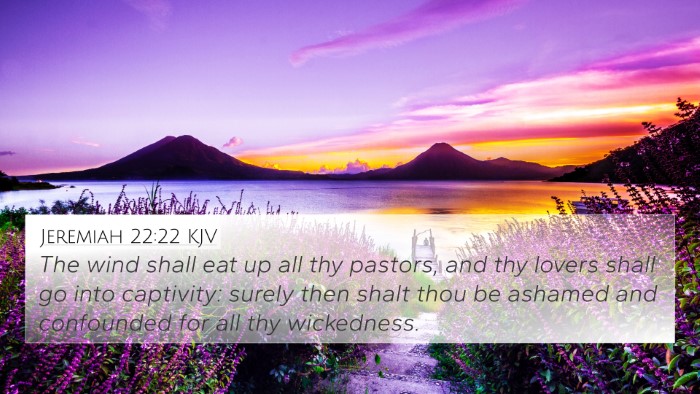
Jeremiah 22:22 (KJV) »
The wind shall eat up all thy pastors, and thy lovers shall go into captivity: surely then shalt thou be ashamed and confounded for all thy wickedness.
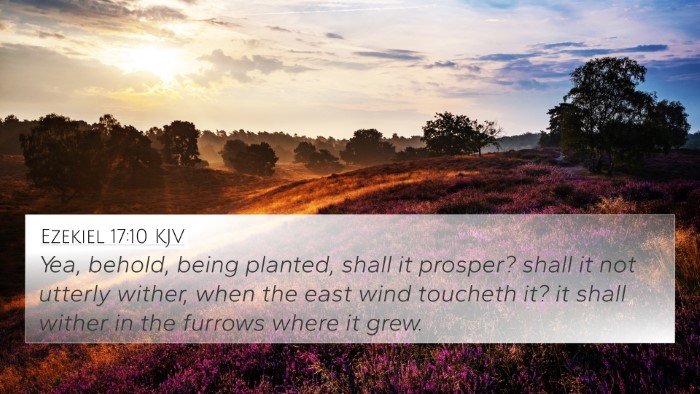
Ezekiel 17:10 (KJV) »
Yea, behold, being planted, shall it prosper? shall it not utterly wither, when the east wind toucheth it? it shall wither in the furrows where it grew.

2 Kings 17:4 (KJV) »
And the king of Assyria found conspiracy in Hoshea: for he had sent messengers to So king of Egypt, and brought no present to the king of Assyria, as he had done year by year: therefore the king of Assyria shut him up, and bound him in prison.
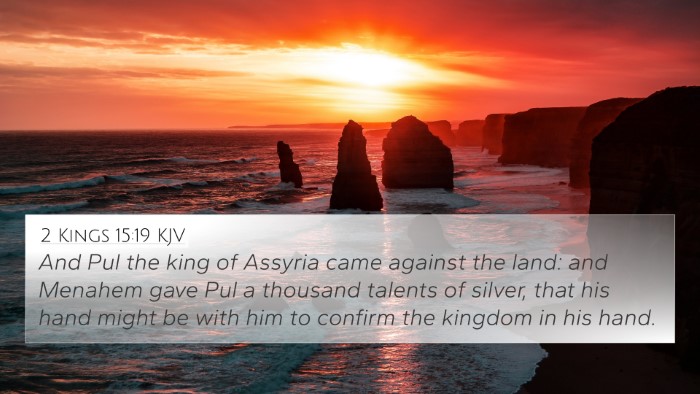
2 Kings 15:19 (KJV) »
And Pul the king of Assyria came against the land: and Menahem gave Pul a thousand talents of silver, that his hand might be with him to confirm the kingdom in his hand.
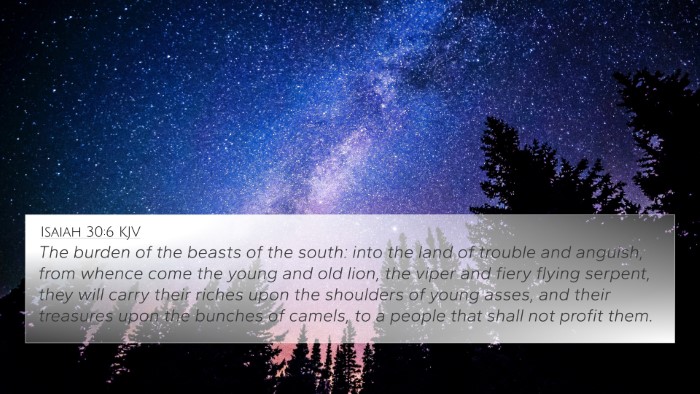
Isaiah 30:6 (KJV) »
The burden of the beasts of the south: into the land of trouble and anguish, from whence come the young and old lion, the viper and fiery flying serpent, they will carry their riches upon the shoulders of young asses, and their treasures upon the bunches of camels, to a people that shall not profit them.
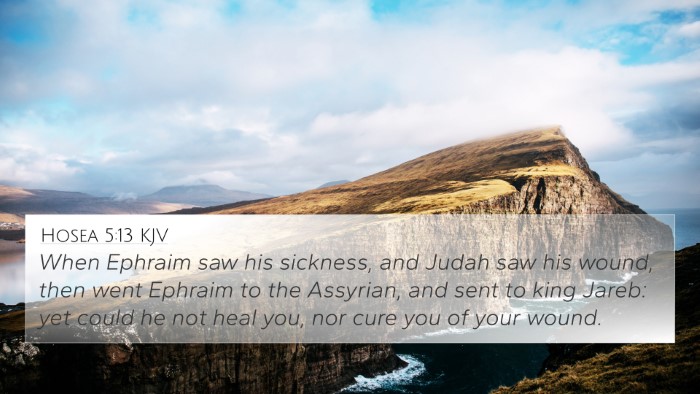
Hosea 5:13 (KJV) »
When Ephraim saw his sickness, and Judah saw his wound, then went Ephraim to the Assyrian, and sent to king Jareb: yet could he not heal you, nor cure you of your wound.
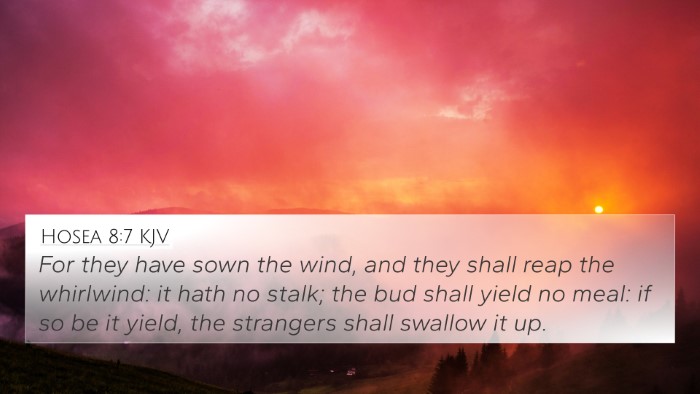
Hosea 8:7 (KJV) »
For they have sown the wind, and they shall reap the whirlwind: it hath no stalk; the bud shall yield no meal: if so be it yield, the strangers shall swallow it up.
Hosea 12:1 Verse Analysis and Similar Verses
Understanding Hosea 12:1
Hosea 12:1 states, "Ephraim feedeth on wind, and followeth after the east wind: he daily increaseth lies and desolation; and they do make a covenant with the Assyrians, and oil is carried into Egypt."
Context and Overview
This verse can be seen as a critique of Israel's reliance on alliances with foreign nations rather than trust in God. The imagery of "feeding on wind" implies that their pursuits are ultimately futile and unfulfilling. The mention of increasing "lies and desolation" highlights the deceptive nature of their actions and the desolation that comes from abandoning God's covenant.
Commentary Insights
-
Matthew Henry's Commentary:
Henry emphasizes that Ephraim, representing the northern kingdom of Israel, is depicted as feeding on the wind, suggesting that they pursue fleeting and insubstantial gains. He notes the futility of their covenants with Assyria and Egypt, emphasizing that true sustenance and security should come from a relationship with God rather than from earthly alliances.
-
Albert Barnes' Notes:
Barnes points out the metaphor of wind as an emblem of instability and emptiness. He discusses how Ephraim's trust in foreign nations leads to their ultimate destruction, indicating that their reliance on these alliances is misguided and detrimental to their relationship with God.
-
Adam Clarke's Commentary:
Clarke elaborates on the image of "feeding on wind," interpreting it as a symbol of Israel's vain pursuits and hopes in alliances with other nations. He stresses that such covenants are rooted in a lack of faith in God’s promises, leading to eventual ruin and disillusionment.
Bible Verse Cross-References
Hosea 12:1 can be cross-referenced with various scriptures to enhance understanding of its themes and implications. Below are some relevant verse connections:
- Isaiah 30:1-3: This passage warns against seeking help from Egypt and relying on human strength rather than divine guidance.
- Jeremiah 2:13: This verse describes Israel’s neglect of the true fountain of living waters in favor of broken cisterns, paralleling the themes of useless pursuits.
- Ezekiel 18:30: This encourages repentance and returning to God as opposed to seeking aid from foreign powers.
- Hosea 6:7: A parallel theme where Israel transgressed against God's covenant, reinforcing their unfaithfulness.
- James 4:14: This New Testament verse speaks to the transience of life, similar to how Ephraim's pursuits yield nothing of lasting value.
- Psalms 146:3-5: A reminder not to put trust in princes or human leaders, echoing the futility of trusting in Assyria and Egypt.
- Proverbs 28:26: This emphasizes that those who trust in their own hearts are fools, highlighting the need for divine reliance.
- Proverbs 11:28: This verse states that he who trusts in his riches will fall, related to Ephraim’s misplaced trust in alliances and wealth.
- Psalm 33:17: This passage reflects on the ineffectiveness of trust in military power without God’s support.
- Isaiah 31:1: This warns against relying on Egypt for protection, reinforcing the message found in Hosea 12:1.
Thematic Connections
The overarching themes in Hosea 12:1 revolve around reliance on God versus reliance on human powers. The notion of emptiness associated with "feeding on wind" resonates throughout scripture, suggesting that true security and sustenance come from God alone.
Applications and Reflections
For contemporary believers, this verse serves as a powerful reminder of the importance of maintaining faith in God above all else. In a world that often encourages reliance on human systems and relationships, Hosea's message is to prioritize divine trust over worldly solutions.
Conclusion
Hosea 12:1 encapsulates the struggle between faith and reliance on human power. By examining cross-references and exploring insights from various commentaries, we uncover a deeper understanding of the futility inherent in seeking security outside of God. These reflections invite us to consider how we, too, might be tempted to feed on the wind in our own lives.
